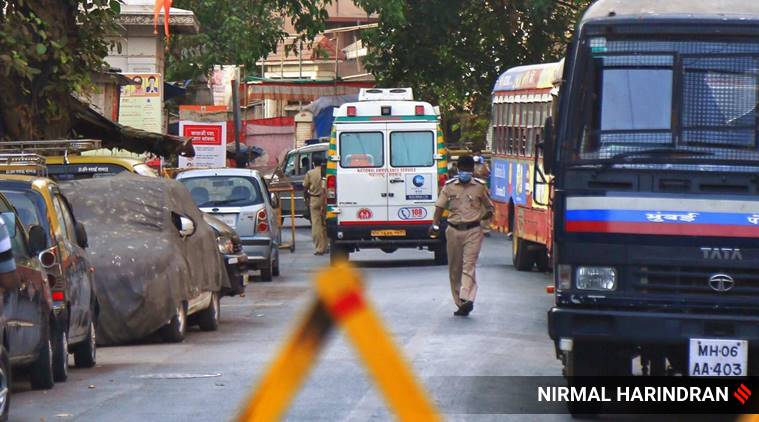- India
- International
3,000-km away from home, migrants from NE states say stuck in Mumbai with no money left to pay rents
Cooped in 60-70-sq ft apartments, shared by as many as six people, they are faced with a bigger challenge: paying house rent.
 Several people from north east are struck in Mumbai, unable to pay rent due to sudden announcement of lockdown. (Express photo by Nirmal Harindran)
Several people from north east are struck in Mumbai, unable to pay rent due to sudden announcement of lockdown. (Express photo by Nirmal Harindran)
It takes Leo Tharmi Raikhan seven days to reach his native village Chinjhroy in Manipur from Mumbai. Even as over two lakh migrant labourers in Maharashtra have started walking back to their home states after a COVID-19 induced 21-day nationwide lockdown was announced, Raikhan feels helpless – there is no way he can undertake an arduous 3,233-km journey home on foot.
Raikhan is among the 15,000-odd Manipuris of Mumbai who have been struggling to make ends meet after their workplaces — most of them are engaged in the hospitality sector, such as call centres, restaurants, hotels and spa — had shut down since March 25. While the community has been facing an upsurge in racial harassment post the disease outbreak, many say being called “virus”, “corona” or “coronavirus” was least of their worries for now.
Cooped in 60-70-sq ft apartments, shared by as many as six people, they are faced with a bigger challenge: paying house rent.
Raikhan, who owns a spa in Kalina, says he has not been able to pay the rent for his shop and house or give salary to his seven employees, all from Manipur, for March. “Every day, a fellow friend from the Northeast requests me to lend Rs 500 or Rs 1,000 or more. I have to turn them away as I need the very little money I am left with. I came here to support my parents and some family members who are still pursuing education. Whatever money I make, I mostly send it back home…,” he says.
Kolivery village in Kalina, where Raikhan lives, is a major residential pocket of Northeastern people, especially from Manipur, comprising more than 750 households. For the first time in the 19 years that he has lived in the country’s financial capital, Raikhan had recently appealed to the local political leaders in Kalina, Juhu, Vile Parle and Khar to direct landlords to avoid harassing Northeastern migrants for not paying rents.

“The problem is that most people from the Northeastern states here are not fluent in either Hindi or English. Also, we’re scared of the police and avoid speaking out in general. We will bear it till we can,” Raikhan says.
Henmi Ningshen says his Chinese restaurant, King Chilli, at Santacruz East, that employs 25 persons, has been shut for over a month. “We along with a few other people from the northeast were planning to assemble after the lockdown and request the state government to arrange for a means of transport for us to take us back home. If the lockdown continues for long, we will not be in a position to sustain ourselves in Mumbai. In our hometown, it is easier for us to get by, but here living without any work is not possible,” he says.
A freelance casting agent in the film industry, Kuri Sirky says Manipuris have been more affected than people from other northeastern states. “Manipur is a state comprising of different tribes, each having their own language. This has kept them from having a united front in their home state and even here. People of Manipur don’t have an active association in Mumbai, unlike those from Mizoram, Assam, Sikkim and Nagaland.”
Ningkhanpan Tuikhar, who lives with his sister, wife and two children in a one-bedroom house at Santacruz East, and runs a salon, Kongsang, in the same locality, says being able to go home in face of such a crisis would have been best for them. “Apart from the worries of having to pay the rent for the house and the shop, besides salaries to the staff and make ends meet, Manipur is a safer place in the present situation,” he adds.
While many NGOs have contacted Raikhan to distribute cooked food, he has so far been avoiding such help. The reason, he says, is that no one here would prefer eating biryani, chapati or its likes. “Our cuisine and preferences are vastly different. We, however, got groceries that were recently distributed,” he says.
Apr 27: Latest News
- 01
- 02
- 03
- 04
- 05








































